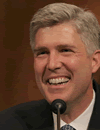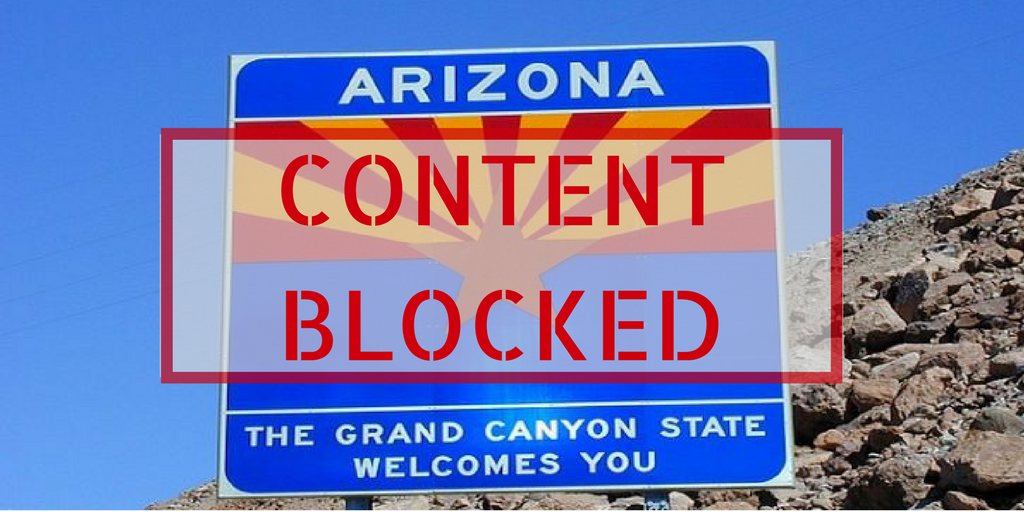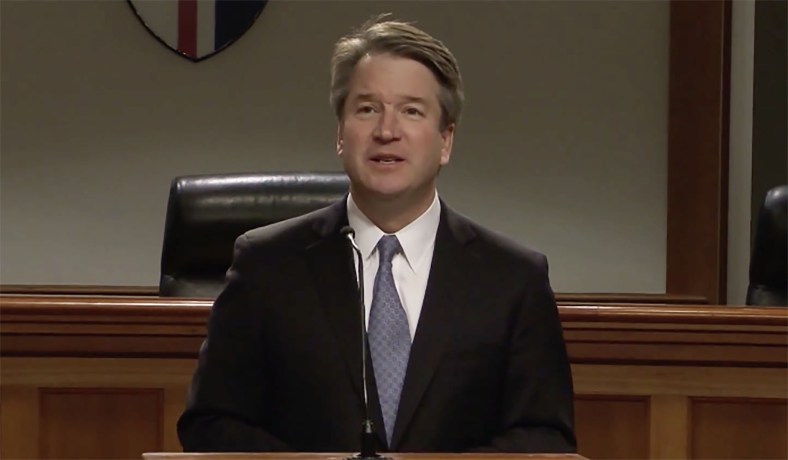Hon. Neil Gorsuch
United States Court of Appeals for the Tenth Circuit (2006-Present)
This post reviews a case in which Judge Neil Gorsuch wrote the opinion concerning jurisdictional issues with strong First Amendment implications.[1] The opinion shows how he carefully interprets the law, free of any bias on this controversial issue.
- Hill v. Kemp, 478 F.3d 1236 (10th Cir. 2007)
In the early 2000s, Oklahoma followed a national trend by creating specialty license plate designs. The original program had 110 varieties, including “Adoption Creates Families” and “Choose Life.” The State directed that the additional fees from the specialized plates be disbursed to government programs via a formula.
A portion of the “Adoption Creates Families” fee went to “a revolving fund established in the State Treasury for and to be used by the Department of Human Services for the implementation of the Investing in Stronger Oklahoma Families Act.”
The state disbursed the “Choose Life” fee in a similar way with nonprofits eventually receiving some monies. The statute forbade any organizations involved with abortion services from receiving this money.
As explained by the court, this suit caused the Legislature to expand the program: “After plaintiffs initiated this lawsuit, the Oklahoma Legislature decided in 2005 to expand the number of specialty plates beyond the 110 or so it had already enumerated. Effective January 1, 2006, the legislature authorized the Tax Commission to design and issue specialty plates demonstrating support for any organization, group, or cause so long as the message does not advertise or endorse a product, brand or service, does not promote prejudice, and is not contrary to state civil rights laws.” The new law still forbade monies from “Choose Life” going to nonprofits that promoted adoption if they also promoted abortion. The state also restricted the new groups in other ways. It required 500 pre-paid participants for new specialty plates under the new version of the law, including pro-abortion rights plates, while grandfathering the anti-abortion plates.
Even after the State expanded the program, the suit by the Oklahoma Religious Coalition for Reproductive Choice Education Fund (ORC) survived in two forms, as noted in the opinion:
In claims one through four of the amended complaint, the Motorist plaintiffs allege that Oklahoma’s specialty license plates statutory scheme unconstitutionally discriminates against those who wish to show their support for “a woman’s freedom to choose among all available reproductive options both before and after conception.” More specifically, they allege that those seeking a special license plate expressing support for abortion rights are not treated equally to those who apply for the “Choose Life” or “Adoption Creates Families” license plates. In claims five and six, ORC challenges the funding restrictions associated with the Choose Life Assistance Program, arguing that the State’s refusal to provide funds under this particular program to groups that express support for and engage in advocacy about abortion amounts to an “unconstitutional condition,” requiring it to forego its protected First Amendment speech activities in order to qualify for governmental benefits.
The district court tossed claims one through four on jurisdictional grounds. The Tax Injunction Act (“TIA”) precluded federal courts from interfering with state-taxing schemes. Judge Gorsuch agreed: “In the TIA, Congress succinctly and sweepingly directed that federal district courts ‘shall not enjoin, suspend or restrain the assessment, levy or collection of any tax under State law where a plain, speedy and efficient remedy may be had in the courts of such State.’”
After reviewing the statutory text and treatises, in writing for the Tenth Circuit, Gorsuch concluded the TIA precluded federal court involvement:
We have no qualms finding in this case that the primary purpose of the special license plate scheme is revenue rather than regulation and thus that it qualifies as a tax under Judge Cooley’s formulation. Under Oklahoma’s scheme, only $8 of each plate sold goes to the administration of the Registration Act; the remaining funds are collected to be disbursed for a variety of public purposes identified by the Legislature. To be sure, for $35 plates much of the remaining money goes to specific state funds and policy objectives associated with the license plate in question (e.g., $20 in the case of the Choose Life plates and $25 in the case of the Adoption Creates Families plates). But the entire community benefits from this scheme as these funds are variously spread among a wide array of State initiatives – ranging from adoption and urban forestry programs to education, grants for organizations that provide dog or cat spaying and neutering services, and the Oklahoma National Guard, to name just a few.
The final two claims involved whether the state was immune from suit for its fee-distribution scheme by the Eleventh Amendment. From Gorsuch’s opinion:
In claims five and six, ORC challenges not the collection of any tax but the manner in which money is distributed from the Choose Life Assistance Program. ORC argues in these remaining claims that the State impermissibly denies it the opportunity to receive monies from the Choose Life Assistance Program based solely on its viewpoint, in violation of the First and Fourteenth Amendments. More specifically, the Choose Life Assistance Program directs monies to groups that counsel “pregnant women who are committed to placing their children for adoption.” ORC indicates that it would like to offer such counseling services to women and has applied for funding to do so, but that its applications have been denied due to a statutory restriction preventing the disbursement of program funds to organizations that are also “associated with any abortion activities.” ORC contends that this restriction amounts to an “unconstitutional condition” on the exercise of its First Amendment rights. Defendants respond, and the district court held, that the Eleventh Amendment immunizes them from such a claim.
Overturning the district court, Judge Gorsuch ruled, at least at this preliminary stage, the Eleventh Amendment did not immunize the state because the relief sought was nonmonetary and prospective.
From the opinion:
By its plain terms, nothing in the Amendment would appear to bar ORC’s claims as they involve purely an intrastate matter – ORC claims to be a non-profit organization located in Oklahoma, and it seeks to sue only its own sovereign state. But the plain terms of the Amendment have been much embroidered.
In Ex parte Young, the Court held that the Eleventh Amendment generally will not operate to bar suits so long as they (i) seek only declaratory and injunctive relief rather than monetary damages for alleged violations of federal law, and (ii) are aimed against state officers acting in their official capacities, rather than against the State itself….
Adding to the rococo quality of Eleventh Amendment jurisprudence, the Supreme Court has in recent years added a new gloss on Young’s gloss on Hans’s gloss on the Eleventh Amendment. First, in 1996, the Court held that Young suits are not available where Congress “has prescribed a detailed remedial scheme for the enforcement against a State of a statutorily created right.” Seminole Tribe of Fla. v. Florida, 517 U.S. 44, 74 (1996). That is, “federal courts are not free to imply the wide-ranging, judge-made remedial doctrine of Ex parte Young when Congress has seen fit to craft a significantly narrower statutory remedy.” ANR Pipeline Co. v. Lafaver, 150 F.3d 1178, 1189 (10th Cir.1998). A year later, the Court instructed that Young may not be rotely applied; instead, lower courts “must ensure that the doctrine of sovereign immunity remains meaningful, while also giving recognition to the need to prevent violations of federal law.” Coeur d’Alene, 521 U.S. at 269, 117 S.Ct. 2028.
In the suit before us, defendants do not dispute that claims five and six meet the Ex parte Young formalisms – that is, those claims seek prospective relief, no damages, and are directed (at least nominally) against state officials rather than the State of Oklahoma itself. Instead, defendants urge us to dismiss this suit on the basis of the new gloss added to Young by Coeur d’Alene. But this only raises the questions: What exactly did Coeur d’Alene do to the state of the Supreme Court’s Ex parte Young jurisprudence? And what does Coeur d’Alene mean for this case?
The Supreme Court tweaked the doctrine again in Verizon Maryland v. Public Service Commission of Maryland, 535 U.S. 635 (2002). From Gorsuch’s opinion:
Following the Supreme Court’s most recent and definitive guidance in Verizon Maryland, the sole question for us becomes whether the relief sought by ORC is prospective, not just in how it is captioned but also in its substance. The State appears to wish the law were otherwise, pursuing arguments that track to a significant degree the sort of case-specific analysis of the state interests at stake that the Fourth Circuit pursued in Verizon Maryland. But we are bound by the law as it is, not as one might wish it to be. And Verizon Maryland has done much to make clear(er) the law that binds us.
Viewing the facts in the light most favorable to ORC, we are unable to conclude that, were ORC to prevail, Oklahoma’s specialty license plate program would be any less financially lucrative for the State, or that the State would be inhibited in any of its funding options, including its decision to collect and spend revenues in aid of adoption activities through the Choose Life Assistance Program.
That is, ORC’s complaint seeks only to prohibit the State in the future from denying Choose Life Assistance Program funds to organizations like ORC because they also advocate abortion. According to ORC, Oklahoma imposes a so-called “unconstitutional condition” insofar as the State allegedly provides no way for ORC to receive such funding to support its adoption counseling services and still exercise its First Amendment right to speak out about abortion, even using entirely private funds in entirely distinct programs. To participate in the State’s Choose Life Assistance Program, ORC contends it effectively must give up its constitutionally protected right to advocate for abortion even on its own proverbial time and using its own (non-governmental) funds.
[W]e are unable to conclude, as defendants would have us, that the relief ORC seeks represents an impermissible form of relief under our received Eleventh Amendment jurisprudence. Of course, at this stage we are confronted only with a motion to dismiss and thus have taken plaintiff’s pleadings as true for purposes of our analysis, drawing all inferences in ORC’s favor.
[1] Internal citations to other cases have been omitted from some of the excerpts below.














